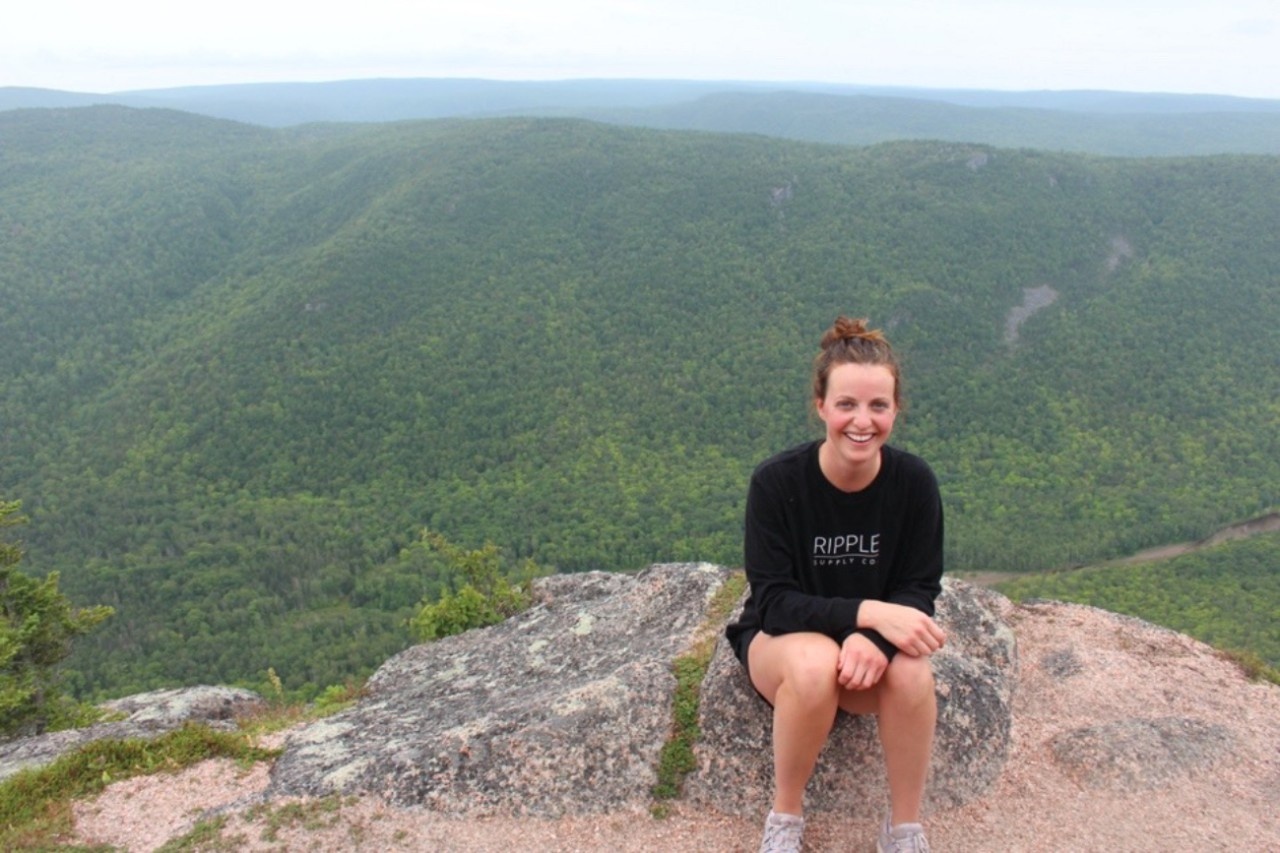Jean MacEachern
Written by Lil Crump

Current MScOS student, Jean MacEachern (Supervisor – Dr. Lynn Shaw)
With a developing interest in Occupational Therapy and alternative therapeutic approaches – specifically Care Farming (social or green care) – Antigonish resident Jean MacEachern determined that the Master of Science- Occupational Science (MScOS) degree was the degree that provided the perfect opportunity to mesh her two interests and produce research on the topic of Care Farming.
Well into her first year of studies, Jean explains that her thesis project is going to “explore the use of Care Farming programs (the therapeutic use of agriculture spaces and tasks to improve health and well-being) with the older adult population living in rural communities within Nova Scotia.” Her intention is to bring attention to the potential Care Farming programs have for mitigating health inequities experienced by the older adult population.
The occupation focus of her thesis project is, she explains, “the occupational engagement in farming activities and tasks including food production tasks (tending to the garden to grow crops, harvesting crops to give away or sell, etc.); and/or animal care and maintenance (cleaning stalls, feeding animals, brushing animals, etc.); and/or farm and barn upkeep and maintenance (painting, fixing fences, landscaping, etc.). There is a purpose behind these tasks that gives participants a sense of meaning and generates a feeling of importance.”
Jean hopes that her initial groundwork findings will spark more research on Care Farming in Nova Scotia and Canada. She believes Care Farming programs and interventions could be beneficial to various populations if implemented into the Healthcare System, but more research is needed to support the implementation of Care Farm programs.
Pride and Learning
During her MScOS studies Jean has learned how engagement in different tasks and activities (occupations) effects almost all parts of life, and how important it is to understand the impacts of occupations on health and well-being. Jean offers, “I am proud of moving out of my comfort zone and enrolling in a thesis-based master’s program. This is my first research experience and I have learned a lot about academia and the research process, but also a lot about myself and my abilities.”
Program Pluses
Jean is appreciative of the flexibility of the asynchronous Occupational Science program. “It allows me to “pursue a master’s education without having to alter major commitments (e.g. paying job, family, home) and offers an opportunity to study from any location through online engagement.”
When asked her opinion on what students should look for when enrolling in a program, Jean suggests, “if you are not quite sure about the MScOS program, reach out to a supervisor, course administrator or current student. Everyone involved is very welcoming and can supply you with all the information you need to inform your decision.” Â
Jean connected with her supervisor through a common connection. “I was interested in the occupational therapy program at Dal, and my supervisor was aware of my interest in Care Farming. She then laid out my program options (OT vs OS) and let me choose which direction I wanted to go. My supervisor has helped me through the whole process and given me guidance on the steps necessary to start and complete a master’s program.”
To contribute to a positive graduate experience and enrich a fully online program, Jean recommends conversing with classmates (even on online platforms). “Your classmates are working through and completing the same things you are, take advantage of this and reach out to them when you have a question, need confirmation, or just generally want to check in.” In addition, “Don’t be intimidated, ask questions! There are resources available and people willing to give you feedback and guidance. Using the resources and supports available will make your experience and engagement with the program much more enjoyable and positive.”
